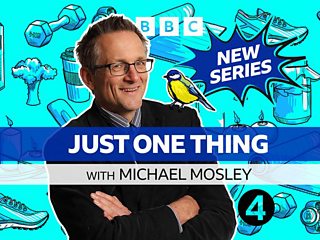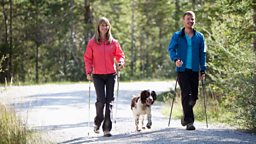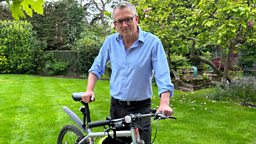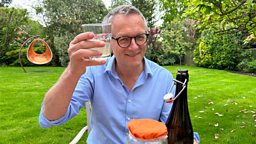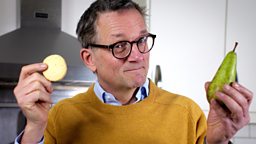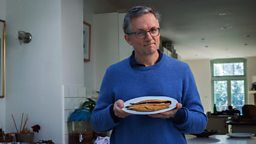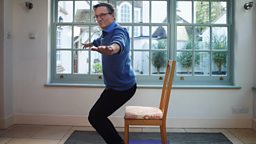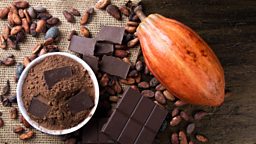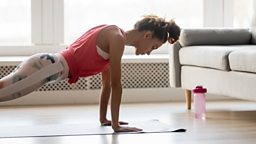Michael Mosley: Why HIIT is an efficient way to get FIT
If you want to get fitter, but time is tight, Michael Mosley has Just One Thing that could really make a difference. Research shows that high intensity interval training or HIIT is the fastest, most effective way to boost your fitness – it could also help you live longer, help your heart and keep your memory super-sharp!
HIIT consists of short bursts of intense exercise alternated between periods of recovery. It is one of the best ways to maximise your workout and your time.
HIIT for long life
In a five-year Norwegian study looking at 1500 adults, participants were placed into three groups: HIIT, moderate exercise and following the government’s activity guidelines. Those in the HIIT group had the biggest reduction in death from all causes.
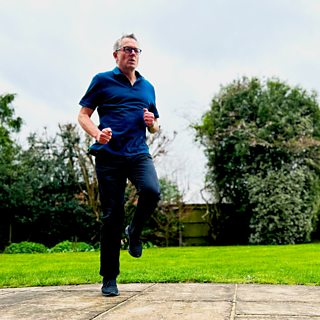
Our peak oxygen uptake is much higher following a HIIT session and this increased oxygen uptake could have serious, long-term positive impact.
Short bursts are the way to go!
In the Just One Thing podcast, Michael Mosley talks to Prof Martin Gibala from McMaster University in Ontario. For his 2006 study, participants were placed into two groups: sprint interval training and moderate intensity exercise. The sprint group spent around 25 minutes per session training, while the moderate intensity group trained for two hours or so per day. Now you might expect the group training for longer to be fitter. But in fact he found that the two groups had similar performance – even down to the cellular level. “The increase in markers of their mitochondrial capacity, at least early on, was very similar,” explains Prof Gibala.
HIIT for mighty mitochondria
Mitochondria are the powerhouses of your cell, producing ATP or the energy you need to live your life! As we age, mitochondria slowly begin to power down. Exercise, however, can get rid of old mitochondria and stimulate new mitochondrial growth. But HIIT is particularly good at this process!
Why is HIIT so effective?
You might find it strange that HIIT can be as effective as other exercises in so much less time. How does the process even work?
“I think it comes down to intensity,” explains Prof Gibala. “And so we can think of these molecular fuel gauges in muscle that regulate the amount of energy that we have. And when we do traditional, moderate intensity exercise, you can imagine it's a bit like pushing halfway down on a gas pedal. And so the fuel in your car starts to slowly go down.”
“Well, when we do high intensity exercise, it's a bit like really stomping on the pedal and dropping those fuel gauges very, quickly, then that leads to the process of cellular remodelling. And that remodelling enhances our physiological capacity. Even if it doesn't take very long, we can see these similar responses in much less time.”

How to get started
According to Prof Gibala, the best way to get started with HIIT is “getting out of your comfort zone”, which looks different for everyone. It’s not about going all out as hard as you can – more about finding something that is intense for your level!
“But I think for almost anyone there's a type of interval training that could be for them. Stair climbing is fantastic, or other types of bodyweight style exercise as well, that can be modified depending on your individual capacity. They don't need to do it for very long.”
On the podcast, Michael meets busy NHS worker Suzanne, and challenges her to add HIIT to the mix. “Across the week, I want you to do two HIIT workouts,” says Michael. “When you go out on your lunchtime walk – I want you to introduce intervals of more vigorous walking – so you’ll pick up the pace, for about three minutes, and then walk at your normal pace for three minutes. And do that for about 20 minutes total. Later in the week, you can try something a little different – replace one of your walks with a session of five one-minute intervals of either running on the spot or going up some stairs and one minute of recovery. Along with a little warm up and cool down, it’ll take about 15 minutes total.”
So there you have it – a few regular intervals of intense exercise can boost your health and fitness and save you time in the process! To find out how Suzanne gets along and for more information on HIIT, listen to Just One Thing on 91热爆 Sounds.
